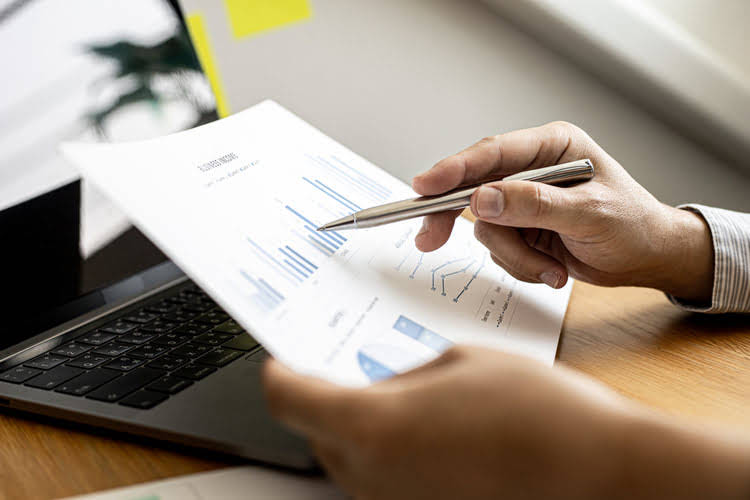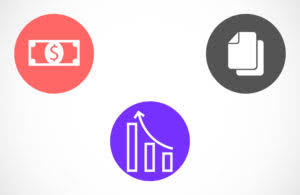
Non-operating expenses are separate from operating expenses from an accounting perspective so as to be able to determine how much a company earns from its core activities. However, if expenses are cut too much it could also have a detrimental effect. The main reason for using expense accounts is to aid expense categorization.

Discover Wealth Management Solutions Near You

Debits and credits represent increases or decreases in different parts of your business, like your money, equipment, or expenses. Some expenses will reduce the business’s taxable income and, therefore, the tax bill. Expense accounts are part of the general ledger contra expense that includes every account and transaction. Consider an expense account as a detailed diary of your business’s outgoing funds. It’s where you diligently record every instance of money leaving your business.
Online Banking Making Business Accounting Easier
Expense accounts are often looked at under a magnifying glass by business owners. However, you need to remember that some expenses are absolutely necessary. As such, you don’t want to cut expenses for the sake of saving money. Changing suppliers may harm you in the long run, even if the product you receive saves you money. Returning to the manufacturing company example, salaries paid to the sales team, along with utility expenses for the company’s corporate headquarters, are considered operating expenses. These expenses are essential for the business’s regular operations but don’t directly relate to the production of goods.
Organization

Create one, and group all related expenses logically, such as having all utility bills under an account called Utilities. Finding out how much you spent on any given expensive category, be it travel, utilities, or automotive expenses, would be a cumbersome and time-consuming nightmare. When you have an account set up for expenses, it’s important not to charge things to it unnecessarily. Even if you own the business that the allocated money is budgeted for, treat it separately.

- Your income accounts track incoming money, both from operations and non-operations.
- Sub-accounts list out how much you spend on each type of expense.
- The implementation of data analytics in expense management has proven particularly valuable for detecting anomalies and preventing fraudulent activities.
- Mobile applications have become instrumental in modern expense management, allowing employees to record expenses on the go.
- After almost a decade of experience in public accounting, he created MyAccountingCourse.com to help people learn accounting & finance, pass the CPA exam, and start their career.
- While these expenses are variable, they are essential to make the business perform well and increase employee satisfaction.
The best idea is to divide expenses into different categories based on their type. For instance, you can categorize expenses related to travel under traveling expenses. Likewise, merge expenses under operational expenses related to operation.
Example of Expense Accounts
Expense accounts help you accurately track your day-to-day expenses by organizing them into different categories. Regular reconciliation of expense accounts with bank statements and other financial documents proves essential for maintaining accuracy. This process helps identify discrepancies early and ensures that all financial records remain current and precise. As the name suggests, operating expenses fall under the payments a business needs to make in order to facilitate business operations. This category includes things like advertising costs, outsourcing expenses, and other variable expenses. Therefore operating expenses vary based on the specific needs of an organization.
Digital expense management solutions contribute significantly to environmental sustainability efforts. By eliminating paper receipts and physical documentation, organizations reduce their carbon footprint while improving operational efficiency. The implementation of data analytics in expense management has proven particularly valuable for detecting anomalies and preventing fraudulent activities. However, it can result in a significant amount of waste if not properly managed. To how is sales tax calculated avoid becoming wasteful or irresponsible with company funds, here are some good reasons to keep track of your business expenses.
Understanding Expense Accounts: A Comprehensive Guide
Mobile applications enable employees to capture receipts, submit expenses, and track approvals in real-time. This immediate capture capability significantly reduces the risk of lost receipts and delayed submissions. Understanding the tax implications of business expenses requires careful attention to detail and knowledge of current tax regulations. Businesses must maintain detailed records of all expenses to support tax deductions and ensure compliance with tax laws. This can include salaries, supplies, rent on office space or Law Firm Accounts Receivable Management warehouse location, etc., and other necessary costs to keep everything running smoothly. Non-deductible expenses are simply expenses that cannot be deducted from an organization’s capital or cannot be reimbursed to employees.

